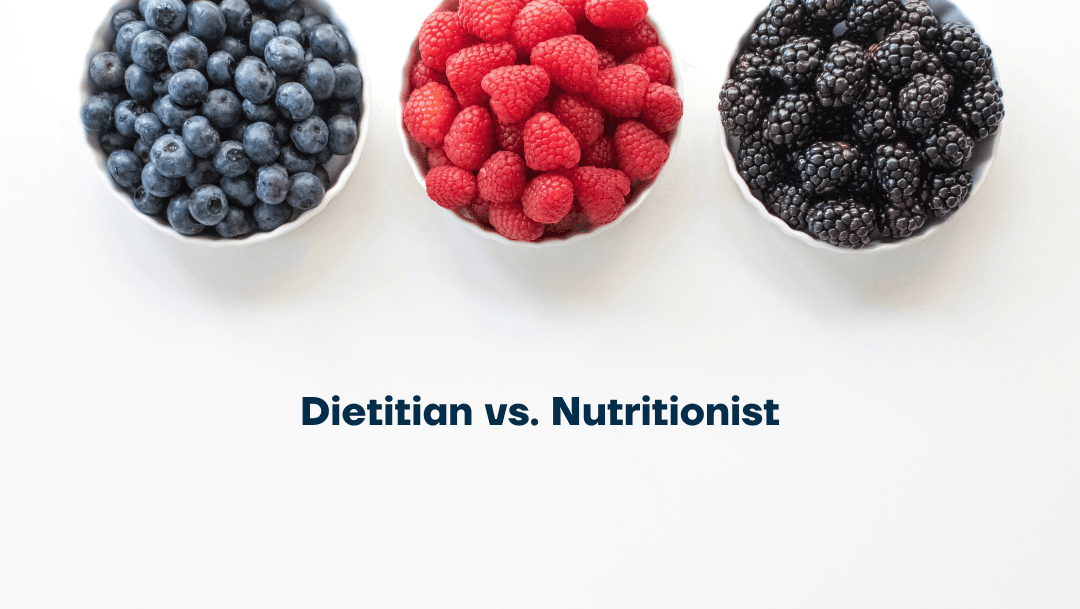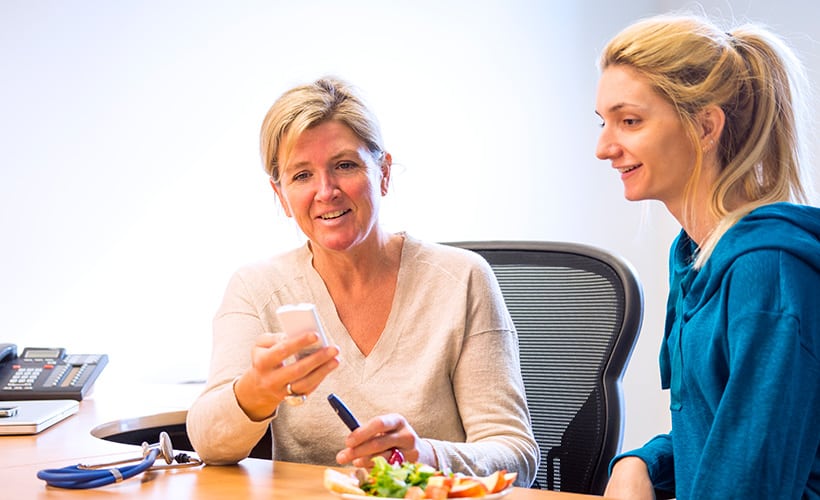All Categories
Featured
Table of Contents
-1
In the United States and lots of various other nations, a dietitian is a board-certified food and nutrition specialist. They are highly informed in the area of nutrition and dietetics the science of food, nourishment, and their impact on human wellness. Through substantial training, dietitians obtain the competence to offer evidence-based clinical nutrition treatment and dietary counseling customized to satisfy a person's requirements.
-1To gain these credentials dietitians-to-be have to initially make a bachelor's degree or equal debts from an accredited program at an university or college. Typically, this calls for an undergraduate science level, consisting of courses in biology, microbiology, organic and not natural chemistry, biochemistry and biology, composition, and physiology, as well as more specialized nourishment coursework.
Eating Disorder Nutritionist ( Melville)
-1This permits them to examine acute demands, prioritizing serious conditions. Inpatient and outpatient dietitians also provide nourishment education and learning to individuals with specialized requirements, such as those freshly out of surgery, in cancer cells treatment, or identified with chronic health problems like diabetes mellitus or kidney disease. In the outpatient setup, they provide a lot more comprehensive nutritional counseling working in the direction of a nutrition-oriented goal.
-1Research study dietitians normally function in research hospitals, organizations, or universities. When dietitians have actually earned their qualifications and are working in the area, they can go on to specialize in a certain subcategory, such as pediatric medicines or sports dietetics.
-1They may in addition show in a scholastic or study establishment or cover nutrition-related subjects. Others might function as health and nourishment specialists in media or as speakers. Dietitians are qualified to handle nourishment treatment across a span of acute and persistent conditions. The kind of problems they treat depends most on the setup of their practice.
Holistic Dietitian ( Melville 6149)
-1In many states, such as Alaska, Florida, Illinois, Maryland, Massachusetts, and Pennsylvania, RDs and CNSs are granted the same state license, generally called an Accredited Dietitian Nutritionist (LDN) certificate. In states that don't manage the use of this term, any individual with a passion in diet regimen or nourishment might call themselves a nutritionist.
-1Since uncredentialed nutritionists normally lack the expertise and training for clinical nutrition treatment and nourishment counseling, following their recommendations can be taken into consideration harmful (). Prior to getting in touch with a nutritionist, you may wish to inspect whether your state manages that might utilize this title. In the united state states that do not regulate the term, no degrees or credentials are required to be a nutritionist.

-1
In states that do mandate licensure, the CNS or RD credential might called for. Those with CNS credentials are health professionals like registered nurses or doctors with sophisticated health levels who have looked for out extra coursework, completed monitored method hours, and passed an exam overseen by the Board for Qualification of Nourishment Specialists.
-1While a few of these techniques may have durable clinical support, others might not. Giving nutrition advice without the proper expertise and training can be damaging, particularly when counseling those with health and wellness conditions. Therefore, if you are considering seeking advice from a nutritionist, you might desire to ask if they are a CNS or have state licensure or certification, or another credential.
Child Nutrition – Bull Creek
-1Several states specifically control this term. In addition, nutritionists might seek an innovative CNS certification.
-1It can be challenging to aid people make genuine, long-term modifications in their lives. Both dietitians and nutritional experts supply a range of nutrition-based services to clients.
-1They have to have finished some level of education and learning in their area. They are likewise needed to have completed as much as a year of monitored job, working within a guided program at a medical care facility, catering organization, or area body. Dietitians have much higher expectations positioned on their abilities and level of professionalism.
-1This indicates that there is no body that supervises their credentials and no specifically strict guidelines that nutritionists requirement to adhere to in order to be able to exercise. Dietitians, on the various other hand, are registered with country wide acknowledged bodies, such as the Dietitians Organization of Australia. They have to comply with the National Competency Specifications for Dietitians.
Nutrition And Lifestyle Coaching – Bull Creek

-1
You can exercise as a nutritionist without the very same degree of certification as a dietitian. Nutritional expert training courses can vary in length and high quality, with some as brief as 6 weeks and covering far less material than a dietetics training course. Depending on your education and learning supplier, you can obtain a considerable quantity of knowledge through researching an easy nourishment training course; nevertheless it's vital to explore the program content before commencing.
-1This can include attending sector seminars or reading industry publications. Nutritional experts, on the other hand, usually gain their certifications in order to supplement various other credentials and offer much better guidance to their customers. Nutritional experts can gain employment in a variety of areas, consisting of public health recommendations, recommendations for people, and collaborating with exclusive organisations.
-1Nutritional experts can collaborate with sporting organisations, fitness centers, schools and recommend media electrical outlets on standard terms and right use of terms. Often, people will look for the services of a nutritional expert to help them in getting into form. Dietitians can operate in many of the same duties as nutritional experts. With a higher level of certification, they can quickly get in a duty that a nutritional expert would certainly hold, provided they are otherwise equal.
Low Fodmap Dietitian – Bull Creek
-1Dietitians typically collaborate with even more clinically sensitive customers. These can consist of those with diabetes, allergies, excessive weight, cancer and stomach conditions. Because of the high degree of knowledge required to offer solutions to these people, only accredited dietitians are permitted to give treatment. A few of the greater degree duties with medical care organizations can be very fulfilling, and pay fairly well.
-1In Australia there is a difference in between a dietitian and other nutritional health and wellness carriers including nutritional experts. All dietitians are nutritional experts, however nutritionists without a dietetics qualification can not call themselves a dietitian.
-1Dietitians with the Accredited Practising Dietitian (APD) credential dedicate to recurring training and education throughout their professions. As an occupation, nutritionists are not controlled in Australia under NASRHP or accredited under a single governing body.
Nutritionist For Weight Gain (Bull Creek 6149)
-1If you have a persistent wellness condition and a treatment strategy from your GP, you may have the ability to declare a Medicare discount when you see an APD. Find out extra concerning help with costs when seeing a dietitian. The primary function of individuals operating in the profession of dietetics is embodied in this statement: The occupation of dietetics adds to the promotion of health and the avoidance and therapy of disease by optimising the nourishment of populaces, areas and people.
Latest Posts
Digestive Health - Perth
Intuitive Eating ( Kwinana 6167)
Dietwise.net.au - About Us